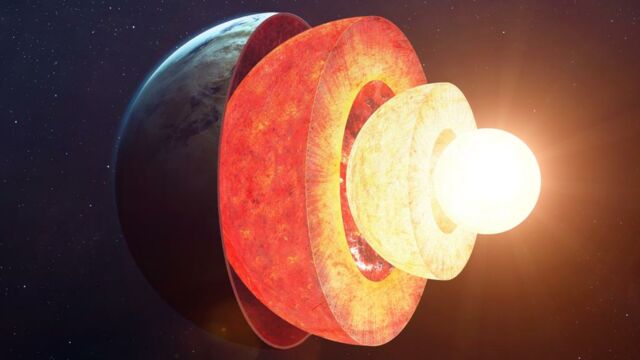People have been exploring the Earth and all its elements & components for ages. Thanks to decades of research, a lot is now known about the Earth - including its interior. With the help of seismic waves, scientists can gain more detailed knowledge about the Earth's core, which consists of a solid inner core and a liquid outer core.
Discover our latest podcast
Thanks to the liquid outer layer, this inner core can rotate independently of the Earth's direction of rotation. However, researchers from Beijing have now surprisingly discovered that the inner, solid core of the Earth has apparently stopped rotating, as Frankfurter Rundschau, a German news outlet, reports.
Investigation of old data
The study, led by Yi Yang and Xiaodon Song of Peking University, analysed seismic data from the 1990s to the 2000s. According to this data, the seismic waves of the earthquakes between 1995 and 2008 diverged considerably, while those between 2009 and 2020 were very similar.
From this, the researchers concluded that the Earth's inner core must have stopped rotating around 2009.
Earth's inner core may have stopped spinning as part of seven-decade cycle, say scientists https://t.co/YrupJLoQuu
— Sky News (@SkyNews) January 25, 2023
Effect on the length of our day
Further studies of data from the 1960s and 70s also suggest that the core changes its direction of rotation about every 30 years. According to this, it should have rotated in one direction until the early 1970s, paused and then rotated in the other direction.
The new 'pause' could therefore again be the first sign of a change in the direction of rotation. The rotation of the Earth's core can also have an effect on the length of our day. If the core rotates in a westerly direction, the days are about 0.01 milliseconds shorter. If it rotates in the other direction, a day will be about 0.12 milliseconds longer.
This article was translated from Gentside DE.
Source used:
-Frankfurter Rundschau: 'Überraschender Fund: Innerer Kern der Erde könnte aufgehört haben, zu rotieren'
- Nature Geoscience: 'Multidecadal variation of the Earth’s inner-core rotation'















